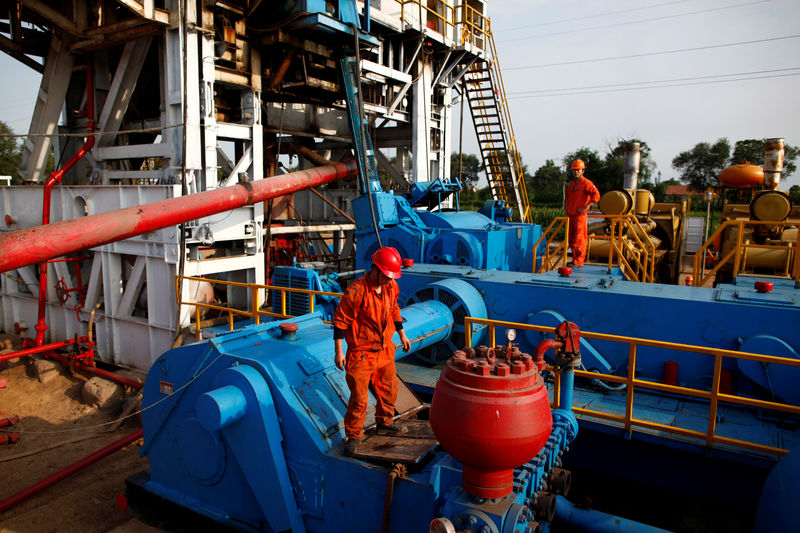By Chen Aizhu
SINGAPORE (Reuters) - Royal Dutch Shell (LON:RDSa) has entered China's shale oil sector, signing an agreement with state-owned Sinopec to study an East China block, part of the nation's early efforts to unlock the potentially massive unconventional resource.
China is already in the initial stages of developing its vast shale gas resources, with production last year making up just 6 percent of total gas output after more than a decade of work. China's shale oil is at an even more basic phase due to challenging geology and hefty development costs, experts said.
Shale oil makes up less than 1 percent of China's crude output after several years of development, according to Angus Rodger, research director of Asia-Pacific upstream at Wood Mackenzie.
"China's shale oil has very low permeability, which means very low per well output that makes the economics hard to work," said an oil and gas official with China's Ministry of Natural Resources (MNR). The official declined to be named because he's not authorized to speak with the press.
Sinopec said on Monday it had agreed with Shell to study the Dongying trough of Shengli in China's eastern province of Shandong, without giving further details.
Shell confirmed the joint study agreement, but did not offer further comment.
That makes Shell one of the few international oil and gas explorers venturing into China's shale oil sector, and follows the Anglo-Dutch company's exit from shale gas drilling in Sichuan province in the southwest after spending at least $1 billion (766.22 million pounds) and getting unsatisfactory results.
Unlike shale gas resources, which are highly concentrated in Sichuan, most of China's shale oil is trapped in eastern regions such as the Songliao and Bohai Rim basins. North China's Ordos and Junggar basins are also believed to hold large shale oil resources, the experts said.
The Dongying trough is part of the Bohai Rim basin, where top Chinese oil and gas group China National Petroleum Corp (CNPC) said in February that it is developing another small shale oil field with an annual output of 50,000 tonnes this year.
In 2013, U.S. energy firm Hess Corp (NYSE:HES) signed a production-sharing contract with PetroChina, CNPC's listed arm, to develop the Malang block of Santanghu basin in the northwest region of Xinjiang, China's first shale oil deal.
Hess quit the block around late 2014 due to poorer-than-expected drilling prospects and as global oil prices plunged, said the MNR official.
"The understanding of geology, resource and the best recovery techniques (for shale oil) has only just begun," said Woodmac's Rodger.

Sinopec is hoping Shell's expertise in shale oil exploration could help the Chinese state major turn around its fortunes at Shengli oilfield as the reserves at the giant conventional oilfield are depleting rapidly, said Rodger.